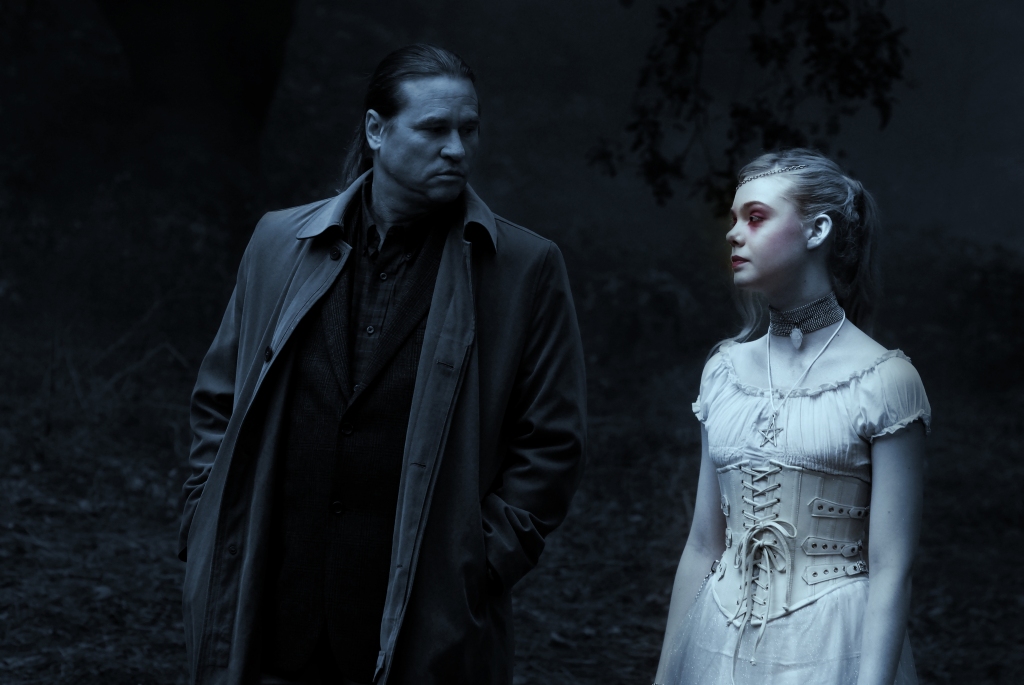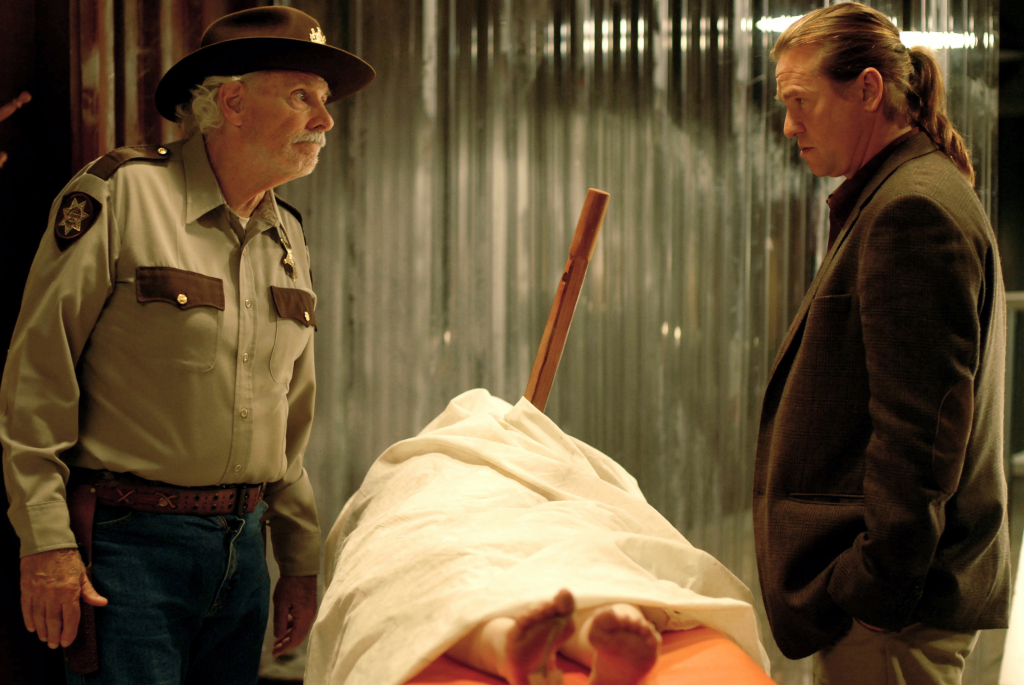Horror writer Hall Baltimore, “the bargain-basement Stephen King,” arrives in search of inspiration to a small town where the clock on the church’s belfry has seven faces showing seven different times- which is to say that Francis Ford Coppola’s Twixt is about being ‘twixt past and present, twixt reality and dream, twixt good movie and a bad mess.

Hall (Val Kilmer, sporting a ponytail) is amusing as a series of screen-ready writer cliches. Real writers will cringe at his badly formatted manuscript, his simulacrum of writer’s block, his silly conversations with his literary agent (“A new novel called ‘The Vampire Executions’? I like it, sounds like a hit! I’ll put $10,000 advance in your account, but I better see an outline by the morning!”)
What matters is that Hall is reeling from the accident that claimed his daughter and has cut him off from his muse- until he starts seeing a vampiric girl in Goth regalia (Elle Fanning) wandering on the outskirts of town. The town once proudly hosted Edgar Allan Poe at the modest Chickering Hotel, which means the place has MYSTERIES! In the past: the mass murder of 12 children. In the present: young runaway girls are being staked through the heart.

In a terrible, unlikely authorial decision, Hall teams up with kooky vampire-hunting Sheriff Bobby LaGrange (Bruce Dern), to co-write his latest creation. And up to that point, Twixt exhibits some sort of coherence. Then the coherence goes out the window, and the audience can not help but wonder if Coppola’s writing method was no different than Hall’s in the movie: Typing aimlessly while splotching whiskey all over the place, or loading himself with over-the-counter sleep aids and hoping that Edgar Allan Poe will give good writing tips during dreams.
Instead, dream-Poe (Ben Chaplin) quotes from “The Philosophy of Composition,” his celebrated essay regarding the creation of “The Raven” (“unquestionably the most poetic subject in the world is the death of a beautiful woman”). And yes, Hall’s grief and guilt and shame over the death of his beautiful daughter are at Twixt’s core (Coppola’s own son died in an accident the movie echoes). But what the hell does that have to do with the Jim-Jones-like mass murder led by a mad preacher in the past? And how does THAT tie with the Baudelaire-quoting Goth gang led by Flamingo (Alden Ehrenreich, visiting from Tetro)? This is a shambles of a script that can only be excused by the generous idea that it’s SUPPOSED to be dream-like nonsense, as Coppola warned interviewers at the time.

Coppola is not new to vampire stories: his Dracula was his last giant, genuine success. Here he’s at a loss, torn twixt horror, drama, and mystery- and when he succeeds at none of those, he decides to do the unthinkable: in its last few seconds, Twixt turns into a FRIKKIN’ COMEDY- a sour, unfunny, comedy that has contempt for the audience. One half expects to hear Luciano Michelini’s “Frolic,” aka the Curb Your Enthusiasm theme song.
That Coppola backed away from filmmaking after Twixt was the wisest move regarding this one.

